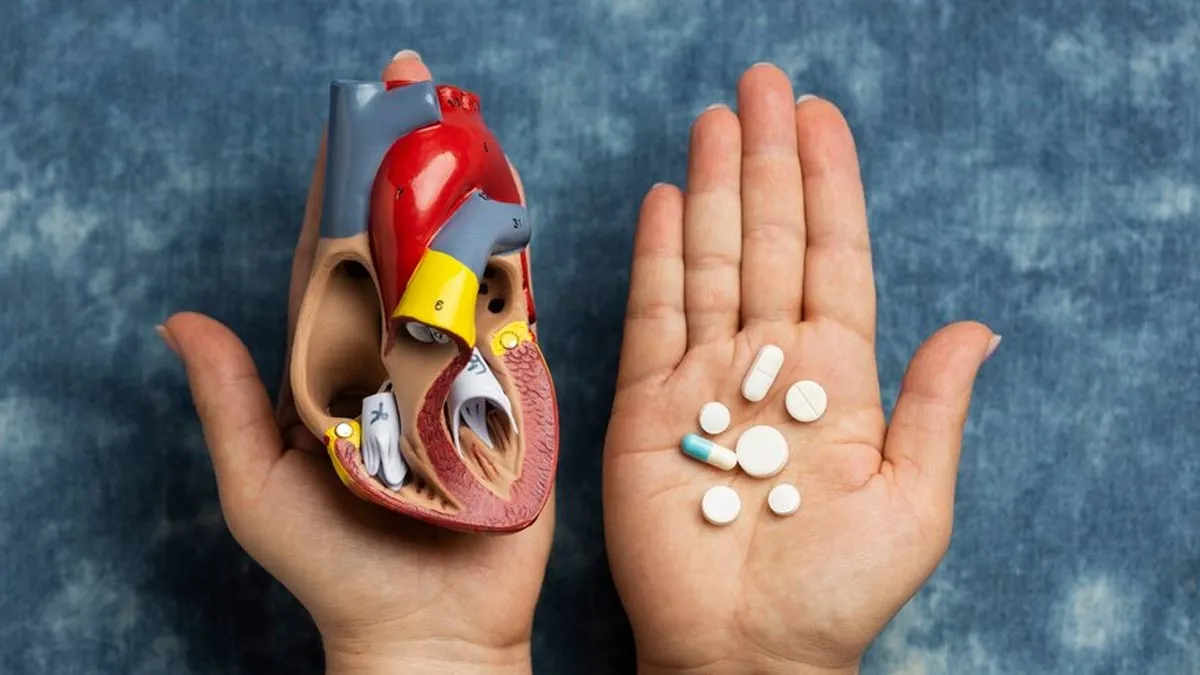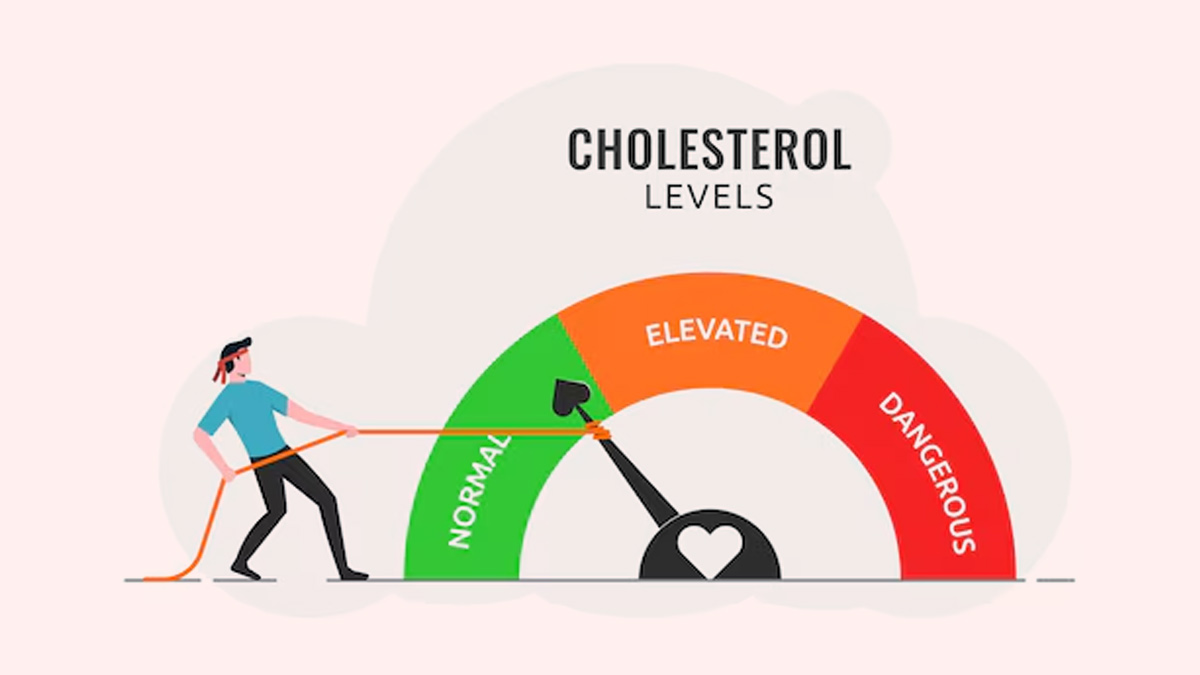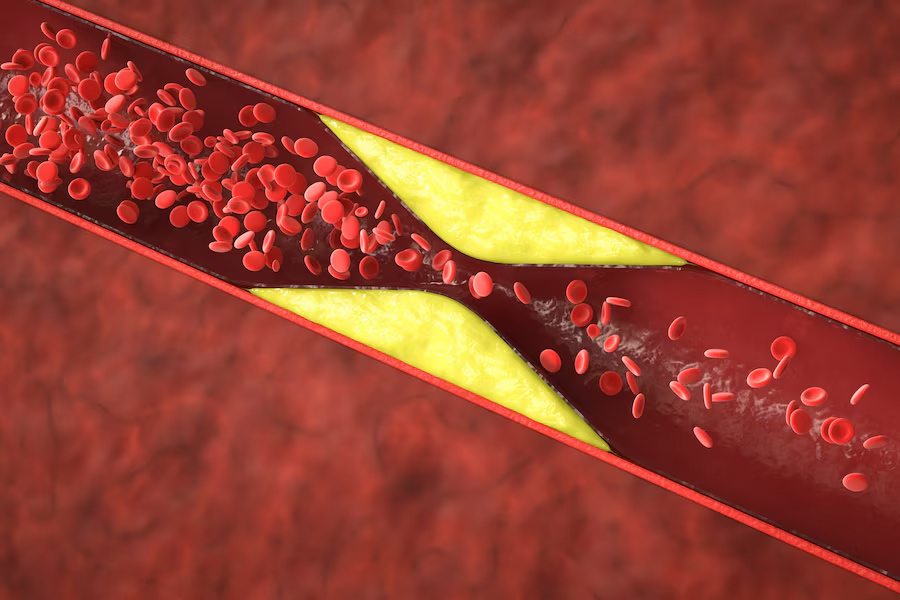
High cholesterol is often called a silent threat because it doesn’t show symptoms until it leads to something serious, like heart disease or stroke. However, not everyone with high cholesterol must be placed on medication immediately. More often than not, lifestyle changes can significantly reduce cholesterol levels naturally.
Table of Content:-
In an exclusive interaction with the editorial team of Onlymyhealth, our expert, Dr Vikram Vora, Medical Director and Chief Health Officer (Indian Subcontinent), International SOS, described how following simple but consistent lifestyle practices can control cholesterol without drugs. Here is everything he shared with us.
Understanding Cholesterol and Its Types
Cholesterol is a waxy, fat-like substance found in all cells of the body. It is essential for making hormones, vitamin D, and materials that aid in the digestion of food. But too much cholesterol, particularly Low-Density Lipoprotein (LDL), or bad cholesterol, can contribute to plaque buildup in arteries, which narrows arteries and raises the risk of heart disease.
Dr Vora clarified, "There are two significant cholesterol types, LDL, causing artery blockage, and HDL or good cholesterol, which aids in removing excess cholesterol from the blood. One tries to reduce LDL and keep or raise HDL."
Also Read: How Does Pollution Affect Pregnant Women? Expert Shares Hidden Dangers

Tips To Lower High Cholesterol Without Medications
Here are a few expert-approved ways to lower high cholesterol without medications:
1. Eat Smart
Diet has the greatest influence in controlling cholesterol. "Shifting to heart-healthy eating with a lot of fruits, vegetables, whole grains, and lean proteins can lower LDL by a considerable amount," said Dr Vora. Foods that are rich in soluble fibre, such as oats, beans, lentils, apples, and flaxseeds, trap cholesterol and enable elimination from the body.
Reducing saturated fats (located in red meat, butter, and cheese) and excluding trans fats (commonly found in fried and processed foods) may also be beneficial. Replace them with healthy fats such as those in nuts, avocados, and olive oil.
2. Stay Active
Regular exercise increases the level of HDL and makes the body more efficient at using fats. "Even 30 minutes of moderately vigorous exercise five times a week, like brisk walking, cycling, swimming, or yoga, can make a measurable difference," shared Dr Vora. Exercise also enhances blood circulation and aids in maintaining a healthy weight, further lessening cholesterol risks.
3. Maintain a Healthy Weight
Excess weight, particularly around the waistline, adds to increased LDL and triglycerides. Reducing only 5 to 10% of your body weight can significantly improve your cholesterol profile. Dr Vora recommended gradual and sustained weight reduction by dieting and exercising regularly instead of crash diets.
Also Read: Struggling With Face Burning After Skincare? Expert Shares What to do

4. Quit Smoking and Restrict Alcohol
Smoking reduces good cholesterol and weakens blood vessels, which are more susceptible to plaque deposition. "One of the best things you can do for your heart health is quit smoking," stressed Dr Vora.
Likewise, moderate alcohol consumption, one drink a day for women and two for men, can also raise HDL, but heavy drinking elevates triglycerides and blood pressure.
5. Reduce Stress Effectively
Chronic stress has also been associated with increased cholesterol and unhealthy lifestyle behaviors such as overeating or physical inactivity. Dr Vora suggested adding stress-relieving habits including deep breathing, meditation, and walking outdoors to aid in keeping an even mental and physical balance.
When Lifestyle Changes Aren't Enough
While these lifestyle changes can dramatically reduce cholesterol, some people will still require medication, particularly those with genetic risk factors, diabetes, or cardiovascular disease. "It's worth seeing a doctor and working through it with them to keep your cholesterol in check and see what's the best way forward," advised Dr Vora.
Bottomline
High cholesterol is frequently controlled without drugs with regular lifestyle modifications such as healthy diet, regular exercise, and stress management, but medical expertise is important for long-term heart well-being.
Also watch this video
FAQ
1. How long does it take to lower cholesterol naturally
It often takes three to six months of steady lifestyle modification to notice significant improvement in cholesterol levels, although this is different for everybody.2. Can stress lead to high cholesterol?
Yes. Ongoing stress can raise cholesterol levels indirectly by instigating hormonal shifts and fostering unhealthy dieting or inactivity.3. Which foods lower cholesterol the most?
Oats, legumes, fatty fish, nuts, olive oil, and high-fibre fruits such as apples and berries are some of the best foods to naturally reduce cholesterol.
How we keep this article up to date:
We work with experts and keep a close eye on the latest in health and wellness. Whenever there is a new research or helpful information, we update our articles with accurate and useful advice.
Current Version
Nov 16, 2025 08:53 IST
Published By : Chanchal Sengar